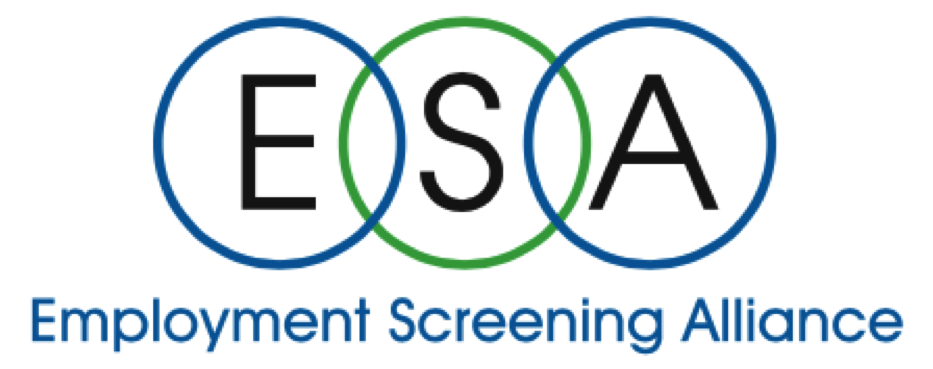
by Employment Screening Alliance | Nov 15, 2016 | Employment Screening
Employment Screening | 8 Reasons to Hire a Graduate Pt. 2
Employment Screening | Compare this to a mature-age professional, who was likely at their previous job for five to ten years. They’re comfortable and content in their routine and network of coworkers and clients. They rely on the coworkers they have known and trusted for a significant time and this can be a roadblock to overcome. While there certainly isn’t anything wrong with extensive experience, the easy attitude and natural communication handling of a graduate can lead to a smooth transition now and months down the track.
6. New perspective
A new approach is probably what kick-started your business, so it only makes sense that to stay afloat you’ll need a fresh perspective. Luckily, graduates aren’t in the mold just yet. They form their individual opinions based on academic experience and knowledge, not the principles ingrained by the industry. They also have a habit of looking at decade-long systems and asking the question, why?
This outside perspective is an invaluable asset no matter your company size. Reinventing efficiency, communications and management is a crucial step in projecting your business growth. The professional world is changing, be ready to lead these changes.
7. No office politics
Nobody enjoys drama in the office. Okay, maybe some of you do. But for most of us, it’s stressful, upsetting and just plain annoying. Unfortunately, it can seem to be inevitable. The great thing about hiring a new professional is that they’re not caught up in conversations by the water cooler – they never been. Graduates won’t respond to the office politics in your business and remain untainted by rumors or peer pressure. Essentially, they’re hired without any problematic excess baggage.
Hiring an experienced professional does have its benefits. They know how office politics work and understand how to deal with them, but is it in a way that reflects the values of your business? When a stellar industry reputation faces ruin, it can become a different ball game altogether. Taking on a graduate can eliminate the risk of clashes and negative competition – they aren’t looking to step on any toes.
8. Great with technology
When four out of every five millennials own a smartphone, it isn’t hard to work out which age group is likely to be the most comfortable with new technology and digital communication. The younger generation is eager to get their hands on the latest gadget, trial the newest software and understand the trending applications. This can make them a potentially highly valued member of your team in the bigger picture.
Millennials may be, in part, more responsive to these advancements because they have grown up with them. Technology directly affects their standard and style of living. If they aren’t able to pick up a new piece of technology and have it down pat in minutes then they’ll fall behind. This isn’t a scenario unique to graduates, it applies to businesses as well. A young professionals’ natural affinity with technology could be the only thing standing between you and success in the fast-paced digital world. -Recruit Loop
Learn what ESA can do for you! Call 866-830-3724 to discuss employment screening services or complete the form on
www.esascreening.com now!

by Employment Screening Alliance | Nov 7, 2016 | Employment Screening
Employment Screening | 9 Reasons Not To Ignore Active Job Seekers Pt. 1
Employment Screening | Have you ever heard someone say that active job seekers – those who are actively in the market looking for job opportunities – are a waste of time?
Unfortunately, the popular belief seems to be that, ‘If they are looking for a job, then they can’t be any good.’
Instead, recruiters have encouraged organizations to focus on those people who are already in jobs, saying, ‘Focus on the passive talent! The best candidates are currently employed!’
Having spent over 2 decades in the recruitment game, I can honestly say this is a myth and it’s time to destroy it.
This belief was created, shared and perpetuated by traditional recruiters to justify sky-high fees for their work and convince unsuspecting organizations that they needed headhunters (and the associated fees) when really what was needed was a simple job ad.
Of course, passive candidates can be a great source of untapped talent for organizations and I’m certainly not saying that every good recruiter shouldn’t devote a period of time to maintaining their passive candidate funnel. However including active job seekers when searching for the best talent can be just, if not more, effective and cost thousands of dollars less.
Before doing any employment screening, here are 10 reasons why you can’t afford to ignore active job seekers:
1. Almost all workers are always seeking new job opportunities
A study done on Candidate Behaviour revealed that 71% of people currently employed actively search for new positions as a regular part of their routine. 27% search for new opportunities as regularly as every week! Job search email alerts sent directly to a person’s inbox makes keeping an eye on currently available job positions easy. It’s likely your candidate will come to you before you manage to reach them passively. How devastating if you ignored them simply because they did your work for you!
2. Active job seekers may be active for good reasons
Not everyone is an active job seeker because they’re not good enough to get the job they want. They may be moving cities for family reasons. They may have taken a sabbatical the year before. They may have just graduated from further education. They may have thought their current role was something that it turned out not to be.
Almost everyone has been an active job seeker at some stage in their professional life. There are many reasons a person is an active job seeker. Remember when employment screening, an ‘active’ job seeker isn’t necessarily out of work. They might be active because they have made the conscious decision to find a new role and are just doing something about it!
I’ve always trained recruiters to quickly assess whether a candidate is either running away from something or running toward something. This will help you determine what type of active candidate they are.
3. Keyword searches don’t find everyone
If you’re searching for someone a little unusual to fill a role requiring creativity and innovation, you likely won’t find the word ‘creative’ or ‘innovative’ on their LinkedIn profile. Creative people are often hiding behind more traditional titles, maybe ones that do not currently relate to the job you are looking to fill. You may be missing out on a potential creative gem by limiting your talent pool to only those who show up in keyword searches.
4. Active job seekers are often the fastest to get across the line
It takes a lot of effort to recruit a passive job seeker – dozens of unanswered emails, hours convincing and negotiating. On the other hand, an active candidate is often ready to go. They are open to new opportunities and have already mentally left behind their current role. When a candidate is the right candidate, an active job seeker will have required far less work to get across the line than a passive one. There’s no need to take the path of most resistance if the result – a great candidate for the role – is the same.
5. Active job seekers can be surprising gems
It stands to reason that active job seekers are far more invested in their potential for a job role than you are. Recruiters can’t know everything about a person and often need the job seeker to present their skills in the right way for a job match to be obvious. -Recruit Loop
Learn what ESA can do for you! Call 866-830-3724 to discuss employment screening services or complete the form on www.esascreening.com now!

by Employment Screening Alliance | Oct 9, 2016 | Employment Screening
Employment Screening | The Shift in U.S. Immigration: Background Check Pt. 1
Employment Screening | During this presidential election cycle, immigration is – or perhaps “remains” is a better term – one of the foremost and most controversial topics.
With immigration discussions in the United States, many believe the country that is the source of most new immigrants is Mexico. Yet, in spite of this popular misconception, most new immigrants to the United States do not come from Mexico. This shift could have an impact on employment screening programs that don’t reach as far as current hiring trends suggests is necessary.
Most newly-arrived immigrants arriving from countries other than Mexico
According to an analysis of census data, a country other than Mexico is the source of newly-arrived immigrants in 37 states within the United States. In fact, since 2005 there has been a rapid and dramatic shift away from Mexico as the country producing the most immigrants to the U.S.
Ten years ago, the story was different. In 33 states, Mexico was the most common source of new immigrants (those in the U.S. for a year or less). The rich job market for unskilled labor and economic conditions in Mexico attracted vast immigration from south of the border. But the downturn in home construction (a major source of employment for immigrant workers), stricter immigration enforcement, an improved job market in Mexico, the Great Recession in the United States, and a simultaneous accelerated demand for employees with technical, medical and scientific skills changed that tide quickly.
The result has been a dramatic slowing of immigration from Mexico, as the pace of immigration from India, China and other nations has significantly ramped up. In 2014, close to 428,000 new immigrants arrived from India and China, more than twice the number from 2005; while new immigrants from Mexico dropped by two-thirds.
The role of Visas
Visas for high-skilled labor play an important role in this shift. In 2014, more than 160,000annual H-1B visas for high-skilled workers were held by immigrants from India. Chinese immigrants held 87 percent of about 8,800 EB-5 visas for investors who create jobs. And of the 150,000 L-1 visas for managers or skilled employees transferred by their employer from overseas to U.S. offices, about a third went to personnel from India and China.
Possible Effects on employment screening or background Check Programs
The U.S. remains the premier destination for immigrants from throughout the world. Since the country’s inception, new arrivals to our shores have brought rich, diverse talents and skills along with a drive to succeed, and continue to add to the fabric of American culture. But companies across the land recognize now more than ever the need to carefully screen new candidates from foreign shores, and are seeking background check processes that extend to Europe, Asia and beyond. For both U.S.-only businesses as well as organizations with both domestic locations and foreign presence, the inability to effectively verify records, or search for criminal records outside the U.S., without the assistance of highly-qualified experts in the field – may result in a bad candidate experience, hurt the company’s ability to recruit, limit talent, and increase risk. -Hire Right
Learn what ESA can do for you! Call 866-830-3724 to discuss employment screening services or complete the form on
www.esascreening.com now!

by Employment Screening Alliance | Oct 6, 2016 | Employment Screening
Employment Screening | 5 Hiring Manager Interviewer Fails
Employment Screening | Your recruiter has scoured scores of resumes to find the perfect candidate, phone screened and met in person the best of the lot, and now all that’s left is to bring the most qualified job seekers in for an interview with you, the hiring manager.
You can almost see the finish line and look forward to learning exactly how the candidate will contribute to your company’s success.
And here’s where things can go south.
Take it from seasoned recruiters: Hiring Managers can turn off an in-demand job candidate with even the slightest negatively-perceived detail and possibly lose a superstar.
These recruiters recommend conducting every interview with all possible professionalism and good manners and avoid five potential pitfalls.
Mess up one or more and candidates can easily damage your employment brand by simplysharing their negative experience about your interview process through their social networks.
Just as you know how to pick up on verbal and visual cues from your candidates’ demeanor during an interview, they too can read your attitude – which may affect what they tell their peers about your company and whether or not they accept your job offer.
Here are five tips to provide your hiring managers to help keep a great candidate enthusiastic about joining your company:
1. Pay attention
If you act disinterested during an interview, it’s going to show.
Your eyes may wander.
You may gaze out the window or at a photo on your desk.
That reflects poorly on you and the company.
The candidate might remember a lack of interest.
So pay attention to everything they say and be engaged in the interview.
Nod your head, smile, or do whatever it takes to let them know they’ve got your attention and that you’re actively listening.
2. Be aware of your body language
You certainly know a lot about a candidate by how they sit, look you in the eye, cross or uncross their arms and legs.
Consider how your posture or gestures may reveal lots to the candidate across the desk.
Try to avoid crossing your arms, fidgeting, playing with a pen, leaning far back in your chair, and showing other physical “tells” that indicate you’re not interested in the candidate.
3. Smile
Granted, an interview isn’t happy hour or an evening at the local comedy store.
But looking dour when greeting the candidate at reception, throughout the interview, and when you bid the candidate farewell, can be a real turn-off.
Even if the candidate attempts a bit of humor and it falls flat, a polite smile can go a long way.
So now and then, show them your pearly whites.
4. Don’t dwell only on his or her resume
An interview is the chance to not only dig deeper and gather context for the achievements the candidate has provided, but an opportunity to get to know the candidate as a person.
So in addition to asking about what he or she has done in the past, have some probing questions ready that get the interviewee to think well beyond the “tell me about yourself” questions (that they probably already found a stock answer for).
Be familiar with their employment screening before you sit down with them, so you don’t spend this valuable time poring over their resume as if you’re seeing it for the first time.
5. Maintain eye contact and shake hands like you mean it
This is another one that works both ways.
You may not feel comfortable with a job candidate who spends most of the interview staring at the ceiling as if all the answers were up there.
And if your eyes wander, the candidate will notice as well.
Always look the candidate in the eye when you welcome him or her into your office or conference room, and – without staring and probably scaring the candidate – return their gaze politely as they speak, and when they leave.
A firm but not knuckle-crushing or, conversely, dead fish handshake will likewise be appreciated and speak to your professionalism and interest.
According to the ever authoritative Wikipedia, “A tell in poker is a change in a player’s behavior or demeanor that is claimed by some to give clues to that player’s assessment of their hand.
A player gains an advantage if they observe and understand the meaning of another player’s tell, particularly if the tell is unconscious and reliable.”
For your hiring managers, they might not even be aware of their “tells” and it may be beneficial to realize that all those little things they do while conducting an interview may reveal to the candidate – for whom this hour may be the most important time in their career – just how engaged or how distant you are. -HireRight
Learn what ESA can do for you! Call 866-830-3724 to discuss employment screening services or complete the form on
www.esascreening.com now!

by Employment Screening Alliance | Oct 5, 2016 | Employment Screening
Employment Screening | Hiring a Marketing Expert Pt. 1
Employment Screening | For a business and employment screening agency to be successful, due to the current state of global market, it has to be able to adapt quickly. Markets are oversaturated and very dynamic. Businesses around the globe are always inventing new solutions that will ensure stable growth and increased revenue. Managers are becoming more important, ensuring that everything is handled well from the inside.
On the other hand, there is also very important work to be done. The part of your business that manufactures products or provides services is working very well. Human Resources has done a great job and you’ve ended up with great staff. But, your company has to make a living by selling its products or services, and you need to get people interested in what you have to offer.
That’s where marketing experts come into play. Their main objective is to design a strategy that will make your products and services alluring to prospective customers.
A marketing expert will have a look at your business objectives and then assess how your public presence is currently set up. You will also be able to find out if your brand’s message is well-aligned with business objectives. A true expert will check your public website and potentially recommend better optimization. And, in the end, you will get a report where you can clearly see various metrics and and all possible areas that need improvement.
As you can see, the company can prosper by signing a contract with a good marketing consultant. Keep in mind that marketing experts will help you put a strategic marketing plan together and they’ll be there for you only during the initial stages of the implementation process. All other aspects of the marketing strategy will need to be handled by your own staff.
If you don’t have the necessary assets, hiring a marketing agency will ensure that all marketing strategies can be handled externally.
What remains are the questions about selection criteria. This is why we have compiled this list of what you should take into consideration when hiring a marketing expert.
1. Check their client portfolio
This should be your priority. Marketing is tough and challenging and it’s not something someone can walk into right after college. You should get the best option for the budget you’ve planned. A strategist who has a lot of experience will be able to design a solid marketing campaign and offer suggestions based on what works.
True marketing experts will have the skills to identify what your company really needs and to understand the message you want to convey to your prospects. The more companies they have worked for, the greater the chances that they have been tried and tested in a variety of situations. This knowledge is a very powerful tool that you want to have in your arsenal before you start to conquer the market.
With Internet access, anyone can become a “marketing expert” in just a couple of days. Don’t let that pumped up professional vocabulary sway you into making the wrong decision. Take your time and give all of their clients testimonials a thorough read. Better yet, try to speak to a few previous clients personally.
You want to focus on measurable statistics and what types of businesses they’ve designed a strategy for. If you don’t want to hire a marketing consultant for a longer period of time, it might be a good idea to outsource the marketing project and hire a team of experts to do this job for you.
2. Check them out on LinkedIn
LinkedIn has become a powerful tool anyone can use to reach out to their peers and prospective customers. It has become very popular in business-to-business selling and recruitment. There is no better way to check if they are competent than checking if they are able to market and sell their own services.
Another thing that’s great about LinkedIn are recommendations. These are not editable, like the ones you might read on websites. LinkedIn Recommendations are genuine and are actually attributed to the owner of a certain profile. They are written by experts in the field and can provide valuable information about the people you are interested in hiring. -Recruit Loop
Learn what ESA can do for you! Call 866-830-3724 to discuss employment screening services or complete the form on www.esascreening.com now!

by Employment Screening Alliance | Oct 4, 2016 | Employment Screening
Employment Screening | Legal Marijuana: New Challenge for Employers Pt. 1
Employment Screening | Marijuana laws are changing across the country, and having a surprisingly profound impact on employers – not just in Colorado.
In addition to the existing 24 states and District of Columbia that have legalized marijuana for medical use and the four states that allow recreational use, 13 states are currently considering legalization measures – eight of which will vote on this matter in November.
Businesses must now determine how to operate in an era when marijuana, still federally illegal as a Controlled Substances Act Schedule 1 drug, is increasingly being legalized at the local and state levels.
With this quickly evolving landscape, now is the time for companies to consider their position regarding the use of marijuana by their employees, but according to a survey recently released by HireRight, only 5% of employers say they (formally) accommodate marijuana use, 39% do not accommodate marijuana use and 52% say they don’t have a policy either way.
Many employers and job seekers aren’t sure where state laws end and federal laws begin.
And even where it may be legal at the state or local level to purchase and use marijuana, many states have specific exemptions for employers which are further exemplified by court cases that have upheld an employer’s right to not accommodate an employee’s marijuana use – whether medically recommended and legalized pursuant to state statute or in a situation where an employee has the right to purchase and use marijuana in their home state.
These disparities have created confusion for employers and many lack a coherent policy that covers a multi-state workforce.
However, while employers attempt to make sense of existing and changing laws alongside employment attorneys, the growing gap in drug policies is creating liability in hiring practices amplifying the importance of having a clear, consistent and legally acceptable policy addressing marijuana to mitigate risk to the organization.
How can a company determine what policy is the right fit for their workforce and the responsibilities associated with the job?
In certain industries federal law mandates drug screening.
In the transportation sector, U.S. Department of Transportation regulations require that safety sensitive employees be screened for marijuana and other drugs.
For other industries, the lines are a bit more blurry.
Consider an industry like manufacturing, where federal rules don’t explicitly mandate drug screening, but job responsibilities and the use of machinery suggest that it’s probably a good idea.
For positions considered white-collar such as those in corporate settings, for example, fellow employees or clients may not necessarily be in potential physical harm due to marijuana use, but it can have an impact on productivity.
The direct economic impact of illicit drug use directly to employers is $198 billion and the U.S. Department of Labor believes there are 14 million active drug users in the workforce.
That’s $14,000 in employer drug-related costs per drug using employee each year on average. -HireRight
Learn what ESA can do for you! Call 866-830-3724 to discuss employment screening services or complete the form on www.esascreening.com now!






